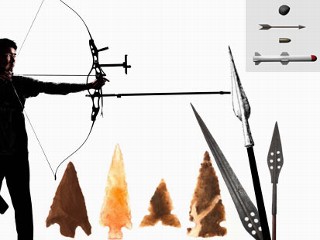Research Blogging. 2.0. Cognitive Daily announced the new, updated version of ResearchBlogging.org. Although the Anthropology section sill appears woefully underused, the new 2.0 version comes with all the features (rss feeds, labels, tagging) to which we have become accustomed.
The University of Capetown awarded a posthumous doctorate to Archie Mafeje. A Black South African who was educated at UCT before apartheid, and who obtained a doctorate in anthropology Cambridge, Mafeje was offered and later denied a post at UCT in 1968, at the height of apartheid. The BBC reports more on the long story.
Looking for Trouble: William O. Beeman wrote an opinion piece for the the Minnesota Star Tribune on two resolutions circulating the U.S. House of Representatives and Senate, asking George W. Bush to take strong measures, including a possible blockade, against Iran.
The AAA Human Rights Blog linked to a Newsweek article, “Don’t Ask, Don’t Tell, Do Kill,” about thepersecution of gay Iraqi men (no women?) by militia men. The Newsweek article concludes:
Persecution of gays will stop only if Iraqis can abandon centuries-old prejudices. They would have to acknowledge that human rights don’t cover only the humans they like. Insisting that gays are just a few undesirable perverts who “should be killed”-as one Iraqi who works in journalism put it-encourages an atmosphere of impunity no matter the offense. Killing gays becomes “honorable.”
The AAA blog asks what anthropologists can do to improve the situation of gays in Iraq? Perhaps one might begin by looking for more nuanced explanations of homophobia then attributing all oppression to an outmoded religious prejudice.
Gender Under Construction: Material World linked to the official launch of the new database website, Gendersite: Gender and the Built Environment. According to Geismar, “Gendersite aims to transfer the research findings of academics and others to built environment practitioners so that the design and management of our towns, cities, buildings and open spaces will better incorporate the specific needs of women.”


